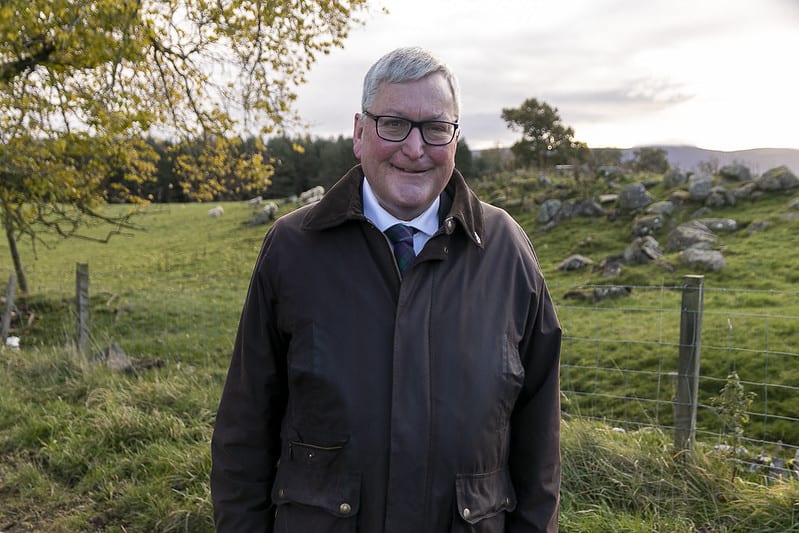Rural and Environment
Start planning for your low carbon future
January 17, 2020 by Fergus Ewing MSP No Comments | Category Agriculture, Climate Change, food and drink

2019 will be remembered as the year that Scotland took a stand on the global climate emergency and saw the introduction of our new world-leading climate change legislation.
This sets a target date for Scotland to achieve net-zero emissions by 2045. This means that our contribution to climate change will end, definitively, within one generation. This transition will be for the benefit of our environment, our people, now and in the future.
Let me be clear though, achieving this will require additional effort and will present challenges and opportunities, including for farming and food production.
It is indisputable that our agricultural industry has a vital role to play in tackling climate change. Indeed I have been clear for many years that farming and food production are part of the solution.
The sector has a positive story to tell. It has reduced greenhouse gas emissions by 29.4% since 1990 and continues to do so through the planting of trees, restoring peatlands, and renewable energy generation.
On farms and crofts across Scotland I have seen great examples of steps being taken. From simple changes to grassland management to more comprehensive action like integrated on-farm renewable energy generation, I’d thank all our farmers, crofters and land managers who are already acting.
For those that have until now been less involved, I strongly encourage you to think about what you can do to ensure you play your part in transitioning to a net zero future.
One simple step to understanding how your business can transition to a more sustainable footing is to undertake a carbon audit, which is available through the Farm Advisory Service (FAS).
A carbon audit provides an overview of the small changes that can be made to make your business more sustainable and more efficient. If acted upon, this can lead to a reduction in your carbon footprint, whilst simultaneously saving you money.
Once aware of areas where action could be taken, there is a wealth of information and practical advice on low carbon farming practices available through FAS, Farming For a Better Climate, the Monitor Farm Programme and the growing number of your colleagues already engaging with these programmes.
Indeed I’d encourage everyone to look at the resources available through these services. Whether you are just starting out or are at an advanced stage, I’m sure there will be something for everyone.
NFUS Vice-President Martin Kennedy has highlighted some of the actions he is taking on his farm. He is working through a five-year plan to soil test his whole farm. What this does is allow him to fully understand the nutrients that are available to him and the ones he must supplement to ensure optimum conditions to support his livestock.
In doing this, he has already benefited from savings of more than £30 per tonne on his fertiliser bill. This approach is nothing new, having been adapted from the arable sector, but one which others could benefit from to maximise their productivity.
Bob and Lucy Forrest of Preston Farm – members of the Beef Efficiency Scheme – have highlighted the changes they had made, which resulted in a reduction in emissions intensity on their suckler-to-finish enterprise.
This included improving forage quality resulting in them now producing the same silage levels from less land, and using clovers in their grassland to reduce the need for additional fertilisers. They have also changed their calving age and introduced calving blocks to maximise efficiency within their herd.
Likewise the McConnachies at Culfoich Farm and many others haven’t waited for government direction, they have simply got on with it. This is the attitude we need, as Scotland cannot rely solely on individual forward thinking farmers. We need the whole industry to take steps, if we are to play our part in meeting the challenge.
There is no one solution for everyone, but there is scope across the board to make changes and improvements.
I would once again strongly encourage everyone to start planning and acting now to embrace low carbon farming practices and technologies. I’m confident that our farmers, crofters and food producers, will not only rise to this challenge, but will lead the way.
Word count – 689
Tags: Agriculture, climate change, Farming, Scotland

Leave a comment